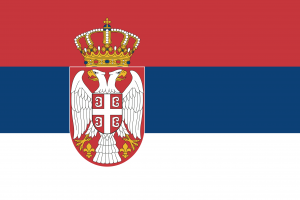Language/Serbian/Grammar/Plurals
Hi Serbian learners! 😊
In this lesson, we will cover the plural forms of nouns in the Serbian language. Understanding plurals is crucial for communicating effectively in Serbian, so let's get started!
What are plurals?
Plurals are noun forms that represent more than one person, animal, object, or concept. In Serbian, words can be pluralized based on their gender and number.
Gender
The Serbian language has three genders: masculine, feminine, and neuter. The gender of a noun determines which form of an adjective, pronoun, or verb is used to modify or agree with it. In Serbian, the gender of a noun is usually recognizable from the word ending, but there are some exceptions.
Let's take a look at some examples:
Masculine nouns
Masculine nouns in Serbian usually end in -a, -ar, -anin, etc. The plural ending for most of them is -i.
| Serbian | Pronunciation | English |
|---|---|---|
| pas | /pâs/ | dog |
| pasovi | /pâsɔʋi/ | dogs |
| direktor | /dirèktor/ | director |
| direktori | /dirèktɔri/ | directors |
| student | /stûdent/ | student |
| studenti | /stûdenti/ | students |
Feminine nouns
Feminine nouns in Serbian usually end in -a or -ija. The plural ending for most of them is -e.
| Serbian | Pronunciation | English |
|---|---|---|
| sestra | /sèstra/ | sister |
| sestre | /sèstre/ | sisters |
| soba | /sɔ̀ba/ | room |
| sobe | /sɔ̀be/ | rooms |
| knjiga | /kɲîga/ | book |
| knjige | /kɲîge/ | books |
Neuter nouns
Neuter nouns in Serbian usually end in -o or -e. The plural ending for most of them is -a.
| Serbian | Pronunciation | English |
|---|---|---|
| dete | /dète/ | child |
| deca | /dètsa/ | children |
| drvo | /drvò/ | tree |
| drva | /drvɔ/ | trees |
| žvakaća | /ʒvakâtʃa/ | chewing gum |
| žvakaće | /ʒvakâtʃe/ | chewing gums |
Number
In Serbian, there are two types of numbers: singular (one person, animal, object, or concept) and plural (more than one person, animal, object, or concept). The plural form is used for two or more items.
Let's take a look at some examples:
Singular
- Dobar dan. (Good day.)
- Jeste li čitalo knjigu? (Have you read the book?)
Plural
- Dobre knjige. (Good books.)
- Jeste li čitali knjige? (Have you read the books?)
Exceptions
Like in any other language, there are some exceptions to the rules. Some nouns have irregular plural forms that should be learned through practice and experience. For example:
| Serbian | Pronunciation | English |
|---|---|---|
| čovek | /tʃɔ̀vɛk/ | man |
| ljudi | /ʎûdi/ | people |
| ruka | /rùka/ | hand |
| ruke | /ruːke/ | hands |
| oko | /òkɔ/ | eye |
| oči | /òtʃi/ | eyes |
Practice Dialogue
Here is a dialogue using plural forms of nouns:
- Person 1: Kolike sestri imate? (How many sisters do you have?)
- Person 2: Imam dve sestre. (I have two sisters.)
- Person 1: Gde idete?
(Where are you going?) - Person 2: Idemo u prodavnice. (We're going to the stores.)
Conclusion
In conclusion, understanding plural forms is crucial for communicating effectively in Serbian. Remember, masculine nouns end in -i, feminine nouns end in -e, and neuter nouns end in -a. There are some exceptions, so practice is essential. Keep practicing and using Serbian plural forms in context to improve your language skills.
If you have any questions, please ask them in the comments section below.
Feel free to edit this wiki page if you think it can be improved. 😎
Sources

